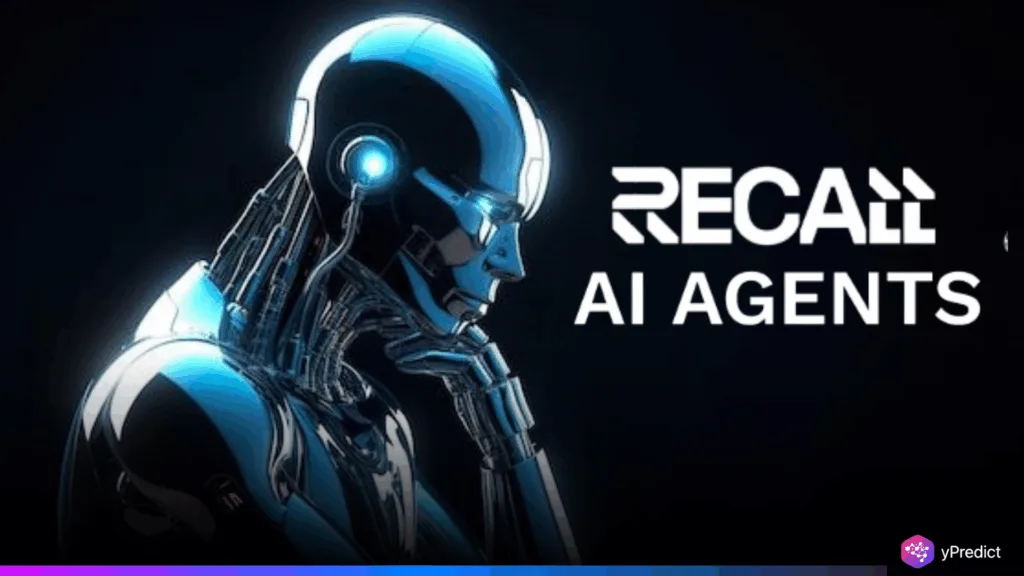
Recall Network is emerging as a critical player in decentralized AI, introducing core features like programmable memory, on-chain reasoning, and real-time context sharing. This combination allows AI agents to function independently, with memory modules that they can update and reference on-chain. Recall solves the problem of explainability in AI because agents can audit their choice in a transparent manner. The architecture of the network focuses on verifiability and resiliency, which differentiates it from centralized ones, whose decision processes are opaque. When the AI trust and transparency model is in the spotlight, Recall provides a new infrastructure based on the model of decentralization and composable intelligence.
Technical Architecture and Scalability
Recall Network’s technical design supports verifiable intelligence through a blend of blockchain protocols, cryptographic proofs, and decentralized agent memory. At its core, programmable memory enables agents to log key actions and references in a shared, immutable space. On-chain reasoning allows agents to verify each other’s outputs and logic through consensus-based steps, building a cooperative layer of distributed cognition. This system isn’t just theoretical; it has already surpassed one billion testnet transactions, underscoring performance and scalability.
The platform’s architecture supports modular intelligence: developers can spin up specialized agents for domains like DeFi, social media moderation, or market surveillance. Context sharing between agents is real-time, allowing for multi-agent collaboration in complex environments. These interactions are backed by a light client infrastructure that supports selective memory reads, ensuring speed and scalability even in resource-constrained settings. As more agents join, the protocol maintains stability through cryptographic state pruning and distributed consensus optimization.
Partnerships with infrastructure providers reinforce scalability by expanding bandwidth and lowering latency. Overall, developers and communities building Web3-native AI tools with accountability built in intend for Recall’s composable design. In contrast to black-box models, Recall sets the groundwork for open-source, auditable, and community-owned AI systems.
Community, Applications, and Ecosystem Impact
Recall Network’s open architecture invites broad community participation, not just as users but as co-creators. Self-verifying AI, where collaborators train and hone the agents, and everyone can access the logic and behavior. It is one of its most compelling points. This decentralized training and validation ensure that centralized AI is becoming an area of some distrust. As its outputs do not tend to be transparent or reproduced easily. Applications are already emerging. AI agents on Recall can be tasked with smart contract auditing, DAO governance insights, or Web3 news summarization. Developers can compete or collaborate through structured agent competitions, submitting proof-backed outputs and staking reputational tokens on correctness.
The ecosystem is designed for modular integration. Projects can plug Recall agents into existing DeFi platforms, gaming environments, or NFT marketplaces. This modularity gives us composability across protocols, leading to a snowball effect of interoperable intelligence. Besides, the memory shards of the protocol are completely auditable, which provides the users with a verifiable record of the agent’s actions. Airdrops and reputation scoring give incentives to high-performing contributors and validators, which creates a long-term model of participation. Recall rewards developers, users, and the network with economic incentives through their ability to prove actions, which is useful in aligning their interests. The outcome is a joint system of AI development, which is based on openness and mutual prosperity.
Outlook and Future Potential
Recall Network is regrouping what is possible with AI in a decentralized world. It provides an attractive alternative to obscure, centralized models because it focuses on verifiable intelligence, shared memory, and transparent decision-making. Since the Web3 infrastructure is only in its infancy, Recall’s scalable and modular nature allows it to emerge as the foundation on which developers can build decentralized autonomous agents in all industries. Its current testnet energy, community, and practical applications indicate that one day, AI will not only be smart, but it will also be responsible and communally owned. As the world becomes dominated by artificial intelligence. The given approach of the Recall Network is an indication that change is required. And such a change is toward openness, resilience, and trust-by-design.






